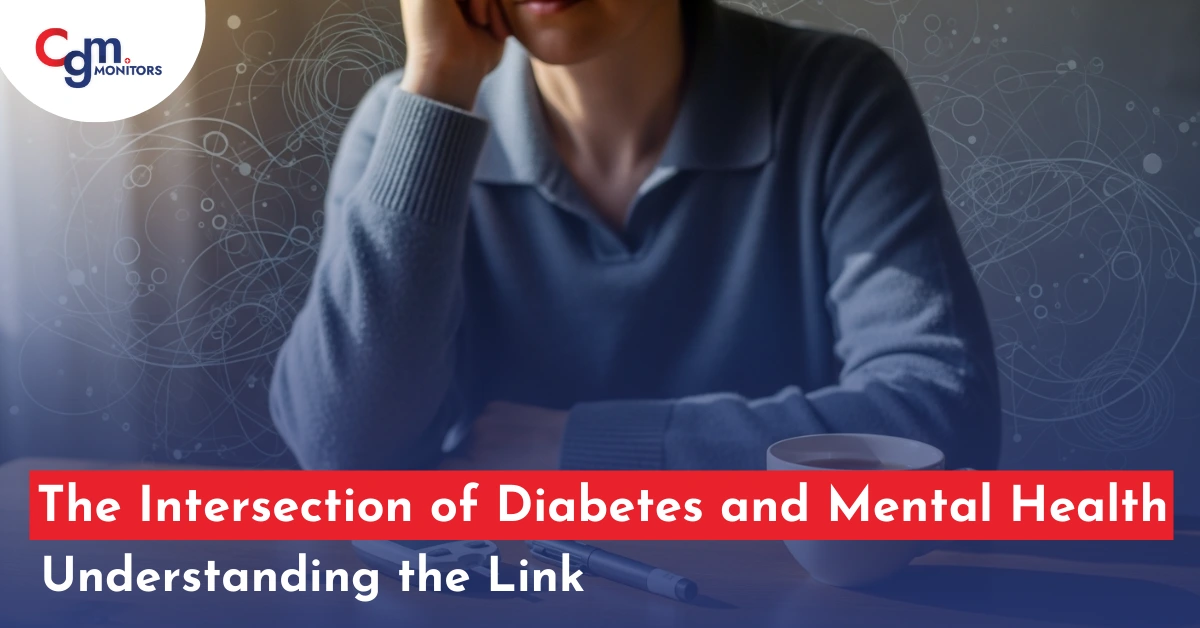Life with diabetes can be challenging on several fronts. Outside the everyday management of blood sugar levels and possible difficulties, there lies one more layer of alarm that often goes ignored or undiscussed: the effect of diabetes on mental health.
Diabetes: A Complex Condition
Diabetes, both type 1 and type 2, needs continuous care of blood glucose levels over medication, diet, and often insulin therapy. The state demands a cautious lifestyle, where even minor variations in blood sugar can have important consequences. This enduring management can lead to anxiety, stress, and feelings of overwhelm.
The Mental Health Toll
The emotional toll of diabetes can be apparent in numerous ways:
Stress and Anxiety:
The daily stresses of handling diabetes can lead to continuing stress and anxiety. Worries about blood sugar levels, medication adherence, and potential difficulties can be considered deeply by persons.
Depression:
A study has shown that persons with diabetes are at higher danger of depression. The continuous management of the state, along with potential limits on lifestyle, can contribute to feelings of sadness and hopelessness.
Diabetes Exhaustion:
This is a term to define a state of physical and emotional fatigue connected to diabetes management. It can cause ignoring self-care performance and increased effort in managing blood sugar efficiently.
Eating Disorders:
In some cases, severe dietary limits and emphasis on food intake can lead to disordered eating manners, such as binge eating or skipping meals, which can confuse diabetes management.
Biological and Psychological Links
The connection between diabetes and mental health is complex and bidirectional:
Biological Factors:
Variations in blood sugar levels can disturb mood and mental function directly. Furthermore, diabetes-related difficulties such as neuropathy and cardiovascular problems can affect mental well-being.
Psychological Factors:
Stress and emotional suffering can disturb blood sugar control by activating hormonal responses that increase glucose levels. This produces a cycle where poor mental health leads to inferior-quality diabetes consequences, and vice versa.
Addressing the Dual Challenge :
Handling diabetes efficiently includes addressing both physical and mental health requirements:
Holistic Care:
Healthcare providers should ponder the psychological effect of diabetes through treatment. Screening for mental health problems and providing contact with mental health professionals can be vital.
Education and Support:
Empowering people with diabetes through education about the emotional parts of the disorder and providing care groups can assist decrease feelings of separation and recovery coping plans.
Self-Care Practices:
Encouraging self-care practices that help mental well-being, such as mindfulness, consistent physical activity, and suitable sleep, can complement diabetes management.
Conclusion
The connection between diabetes and mental health highlights the importance of a complete method of healthcare. By knowing and addressing the emotional and psychological challenges related to diabetes, we can increase general well-being and quality of life for individuals with this condition.
If you or somebody you know is stressed by the emotional effect of diabetes, think that support is available. Looking for help from healthcare professionals and connecting with support networks can make an important change in managing both the physical and emotional aspects of diabetes.














Write a comment
Your email address will not be published. All fields are required